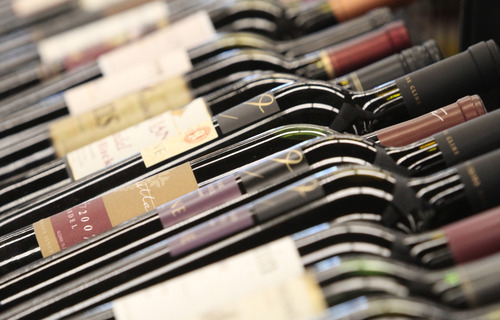This is an archived article that was published on sltrib.com in 2012, and information in the article may be outdated. It is provided only for personal research purposes and may not be reprinted.
An amended lawsuit by a Utah hospitality trade group seeking to overturn a state liquor law has dropped claims that LDS Church officials have unduly influenced state lawmakers.
It instead more specifically centers on parts of the law that club and restaurant owners contend restrain their trade.
The Utah Hospitality Association initially claimed representatives of the LDS Church, whose members represent Utah's dominant religion, had threatened lawmakers that there would be repercussions if they did not approve SB314 during the 2011 legislative session.
But Utah Assistant Attorney Kyle Kaiser said the LDS Church has the right to offer its views on liquor laws to the Legislature, whose majority is made up of members of the church, which teaches its adherents to eschew alcohol. He called the laws "religiously neutral, which don't advance or inhibit a particular religion."
Last month, U.S. District Judge Bruce Jenkins brushed aside claims that officials from The Church of Jesus Christ of Latter-day Saints had illegally influenced state lawmakers, saying Mormons have a right to consult with legislators.
Jenkins dismissed the lawsuit against Gov. Gary Herbert and the Utah Department of Alcoholic Beverage Control. But he gave the hospitality association until Monday to amend its complaint in order to describe specific harms to restaurant and bar owners.
In the new action, hospitality group attorney Lisa Marcy said the part of the law outlawing discount drinks is "unconstitutionally vague" because it fails to define key words and phrases. For instance, the statute forbids establishments from selling discount drinks "on any date or at any time," yet it allows for price changes on different days.
The law is so confusing, said Marcy, that one bar owner "does not know how to comply with the statute. On the one hand, he is not supposed to sell drinks at a discount, yet he is allowed to change them from day to day."
Marcy said the state has illegally restrained trade under the federal Sherman Antitrust Act, yet at the same time it gives itself an unfair competitive advantage by allowing state-controlled stores to sell liquor at discount prices. Bar owners are losing money because their customers "instead have chosen to buy intoxicating liquors, wine and beer from the state-operated liquor and wine stores," she said.
Lawmakers have repeatedly said discount drinks promote underage drinking and drunk driving.
The hospitality group also is challenging provisions in the law that tie the number of liquor permits to both the state's population and to the number of public safety officers. Bar permits are in such short supply that none are expected to be available for the next two years. And last month, the state ran out of available restaurant licenses.
Twitter@DawnHouseTrib



